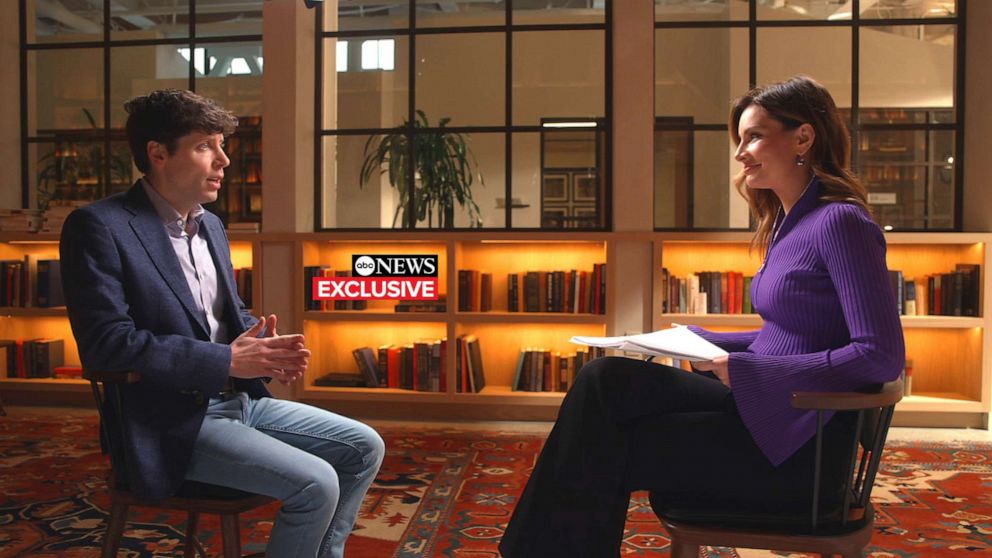In an interview with ABC News, OpenAI’s CEO remarked “We’ve got to be careful here,” and that these models can be used for “large-scale disinformation.”
In a discussion with ABC’s Rebecca Jarvis regarding the rollout of GPT-4, OpenAI’s 37-year-old CEO Sam Altman touched upon a variety of pressing issues ranging from the concerns about misinformation, bad actors misusing AI tools, and AI replacing jobs to using ChatGPT to cheat on assignments.
Altman believes that ChatGPT will reshape society and also comes with some real dangers. Outlining that we need to be careful, he said “I think people should be happy that we are a little bit scared of this.”
ChatGPT has surpassed TikTok in hitting 100 million monthly active users since its release. GPT-4 is the new iteration that has scored near-perfect on SAT Math and excellently on the Uniform Bar Exam with 90th percentile.
The dangerous implementations of AI, however, are something that Altman actively keeps in mind, being particularly worried about those who could use these models for disinformation and those who will build other AI apps without the safety limits of the highest standard.
Hallucinations remain to be a big problem with current AI tools including ChatGPT. With GPT-4’s comparative superiority to GPT-3.5 regarding hallucinations, Altman comments that the new iteration has “this emergent ability to reason better.”
GPT-4 is 40% less likely to manufacture facts. This makes results significantly more accurate in the new version as OpenAI shifts the focus to make AI reason better than just be a repository of factual information.
Stressing the importance of keeping a tool like ChatGPT safe, OpenAI mentions that they are putting safeguards by collecting feedback while “stakes are low” and letting people toy with each new version.
This, however, is not going to be how every new AI tool rolls out. Altman worries that “we’re not going to be the only creator of this technology, there will be other people who don’t put some of the safety limits that we put on it.”
When asked about the potential of AI to replace human jobs, he encourages people to look at ChatGPT as a tool and not a replacement. He adds that, “human creativity is limitless, and we find new jobs. We find new things to do.”
Read about the interview here.

